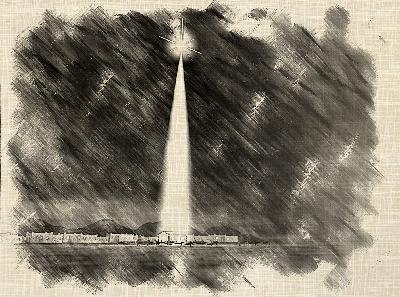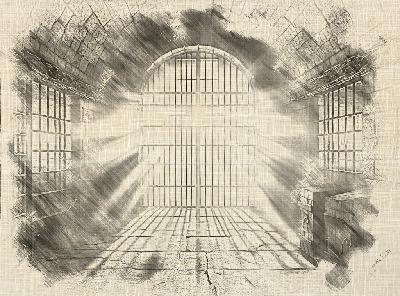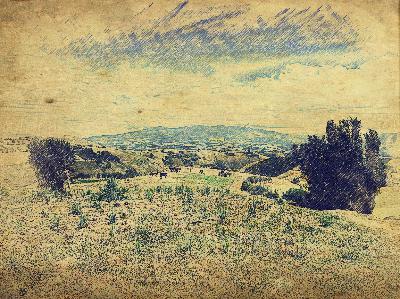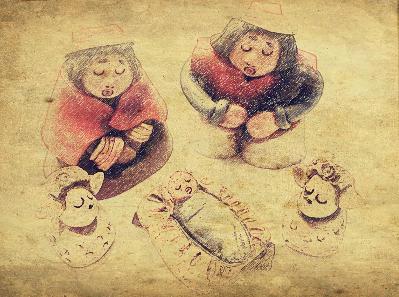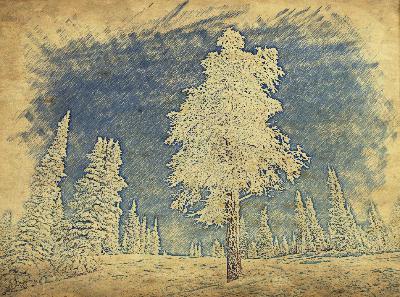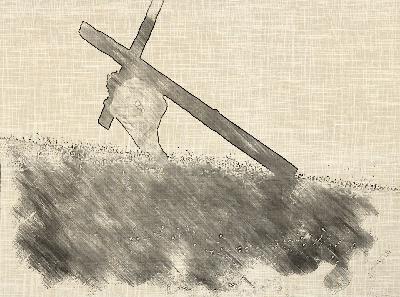‘O Little Town of Bethlehem’: A Spiritual Reflection
Description
There are moments in history when the divine and the mundane intertwine so seamlessly that we can scarcely discern where one ends and the other begins. Such is the story of “O Little Town of Bethlehem,” a hymn that emerged from the heart of a man touched by the raw beauty of the Holy Land, amidst a time of national turmoil and personal reflection. As we delve into the depths of this beloved carol, let us prepare our hearts to receive not just knowledge, but wisdom; not merely information, but transformation.
The year was 1865, a time etched in the annals of American history with both sorrow and hope. The Civil War, that great and terrible conflict which had torn asunder the very fabric of a nation, had finally drawn to its bloody close. Yet, even as the echoes of cannon fire faded, a single gunshot reverberated through the collective consciousness of a grieving people – the assassination of President Abraham Lincoln. In this crucible of national anguish, the concept of peace seemed as distant as the stars that hung over Bethlehem on that first Christmas night.
It was into this tumultuous world that Reverend Phillips Brooks, a man of God whose own heart mirrored the conflicted soul of his nation, embarked on a pilgrimage to the Holy Land. Little did he know that this journey would not only soothe his troubled spirit but would also gift the world with a hymn that would touch hearts for generations to come.
As Brooks stood in Bethlehem on Christmas Eve, the very air around him seemed to whisper of ancient mysteries and eternal truths. The stone-paved streets, worn smooth by centuries of pilgrims’ feet, the humble dwellings casting long shadows in the fading light, the distant bleating of sheep – all spoke of a simplicity that stood in stark contrast to the complexities of his modern world. It was here, amidst this humble setting, that the profound truth of the Incarnation struck him anew.
In later reflections on his experience, Brooks wrote, “I remember standing in the old church in Bethlehem, close to the spot where Jesus was born, when the whole church was ringing hour after hour with splendid hymns of praise to God, how again and again it seemed as if I could hear voices I knew well, telling each other of the Wonderful Night of the Savior’s birth.”
Can we not, dear friends, imagine ourselves standing alongside Brooks in that moment? Can we not feel the weight of history pressing upon our shoulders, even as the lightness of divine grace lifts our spirits? For in Bethlehem, the eternal and the temporal kiss, and in that kiss, we find the essence of our faith.
Let us turn our attention now to the hymn itself, a masterpiece of spiritual introspection set to melody. The opening lines immediately transport us to that holy night:
“O little town of Bethlehem,
how still we see thee lie!
Above thy deep and dreamless sleep
the silent stars go by.”
Here, Brooks paints for us a picture of tranquility so profound that it seems to defy the very nature of our bustling, anxious world. The stillness he describes is not merely the absence of noise, but a pregnant pause in the grand narrative of creation – a holy hush, if you will, as all of heaven holds its breath in anticipation of the miracle about to unfold.
This imagery calls to mind the words of the prophet Habakkuk, who declared, “But the Lord is in his holy temple; let all the earth keep silence before him” (Habakkuk 2:20 , ESV). Is this not the very essence of that holy night in Bethlehem? The earth, as if aware of the magnitude of the moment, falls into a “deep and dreamless sleep,” while above, the “silent stars go by,” mute witnesses to the unfolding drama of redemption.
Yet, in this stillness, Brooks reminds us that something profound is stirring:
“Yet in thy dark streets shineth
the everlasting Light;
the hopes and fears of all the years
are met in thee tonight.”
Here, we encounter a paradox central to our faith – that in the darkest of nights, the brightest of lights shines forth. The apostle John, in the prologue to his Gospel, echoes this truth: “The light shines in the darkness, and the darkness has not overcome it” (John 1:5, ESV). In Bethlehem’s dark streets, the Light of the World took on flesh, a light so powerful that all the darkness of human history could not extinguish it.
Moreover, Brooks touches upon a profound theological truth – that in the birth of Christ, “the hopes and fears of all the years are met.” Here, in a single line, he encapsulates the entirety of human existence – our deepest longings and our most paralyzing terrors, all finding their resolution in the person of Jesus Christ. As the apostle Paul would later write, “For all the promises of God find their Yes in him” (2 Corinthians 1:20 , ESV).
As we move to the second verse, Brooks shifts our gaze from the earthly to the heavenly realm:
“For Christ is born of Mary,
and gathered all above,
while mortals sleep, the angels keep
their watch of wondering love.”
Here, we are reminded of the cosmic significance of this seemingly insignificant birth. While the world slumbers, unaware of the miracle in its midst, the heavenly host stands in rapt attention. The juxtaposition of sleeping mortals and watchful angels serves to highlight the often-hidden nature of God’s most profound works. How often do we, in our spiritual slumber, miss the wonders that God is working all around us?
The phrase “watch of wondering love” is particularly poignant. Even the angels, those celestial beings who dwell in the very presence of God, are filled with wonder at the spectacle before them. As Peter would later write, these are “things into which angels long to look” (1 Peter 1:12 , ESV). If the angels, in all their wisdom and proximity to the divine, are moved to wonder, how much more should we, mere mortals, stand in awe of the Incarnation?
Brooks continues:
“O morning stars, together
proclaim the holy birth,
and praises sing to God the King,
and peace to all on earth.”
Here, we see an allusion to the biblical account of creation, where “the morning stars sang together and all the sons of God shouted for joy” (Job 38:7, ESV). In calling upon the morning stars to proclaim Christ’s birth, Brooks ties the Nativity to the very act of creation itself, reminding us that in Christ, God was effecting a new creation, a theme that Paul would expound upon in his epistles (2 Corinthians 5:17 ).
The proclamation of “peace to all on earth” echoes the angelic announcement to the shepherds: “Glory to God in the highest, and on earth peace among those with whom he is pleased!” (Luke 2:14 , ESV). Yet, how profound is the irony that this hymn of peace was penned in a time of national strife and personal turmoil. Perhaps Brooks, standing in Bethlehem, was reminded that true peace is not the absence of conflict, but the presence of Christ amidst our storms.
As we move to the third verse, Brooks delves deeper into the mystery of the Incarnation:
“How silently, how silently
the wondrous gift is given!
So God imparts to human hearts
the blessings of his heaven.”
The repetition of “silently” serves to emphasize the quiet, almost imperceptible nature of Christ’s entry into the world. There were no trumpet blasts, no royal proclamations – just the cry of a newborn in a humble stable. This silence stands in stark contrast to the often bombastic nature of human pomp and circumstance. It reminds us of Elijah’s encounter with God, where the Lord was not in the wind, the earthquake, or the fire, but in the “low whisper” (1 Kings 19:12 , ESV).
Brooks draws a parallel between the silent coming of Christ and the way God works in human hearts. Just as Christ entered the world quietly, so too does He enter our lives – not with fanfare, but with the gentle knock of grace upon the door of our hearts. As Revelation 3:20 (ESV) reminds us, “Behold, I stand at the door and knock. If anyone hears my voice and opens the door, I will come in to him and eat with him, and he with me.”
The hymn continues:
“No ear may hear his coming,
but in this world of sin,
where meek souls will receive him still
the dear Christ enters in.”
Here, Brooks touches upon a profound spiritual truth – that the reception of Christ is not dependent upon external circumstances or sensory experiences, but upon the posture of the heart. In a world marred by sin, where the clamor of human ambition and strife often drowns out the still, small voice of God, it is the “meek souls” who are able to perceive and receive Christ.
This echoes Jesus’ own words in the Beatitudes: “Blessed are the meek, for they shall inherit the earth” (Matthew 5:5, ESV). The meekness spoken of here is not weakness, but a humble receptivity to God’s will and ways. It is in such hearts that Christ finds His dwelling place, just as He found His first earthly home in the humble manger of Bethlehem.
As we come to the final verse, we find that Brooks has crafted not just a hymn of reflection, but a prayer of invitation:
“O holy Child of Bethlehem,
descend to us, we pray;
cast out our sin, and enter in;
be born in us today.”
Here, the hymn shifts from historical narrative to personal application. Brooks invites us to move beyond mere commemoration of a past event to an encounter with the living Christ in the present moment. The plea for Christ to “descend to us” reminds us of our need for divine condescension – for God to stoop down to our level, to meet us in our brokenness and need.
The request to “cast out our sin, and enter in” acknowledges the reality of human fallenness and our desperate need f

